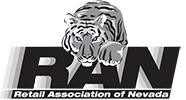By Kristen Gallagher
The 2021 Nevada Legislative Session produced several statutory amendments impacting retail employers on key issues, including settlement agreements, wrongful termination and right to return to work.
Settlement Agreements – AB 60
Effective May 21, 2021, AB 60 provides that a contract or settlement agreement is void and unenforceable if certain provisions prohibit or restrict a party to the contract or settlement agreement from testifying at a judicial or administrative proceeding concerning another party to the contract or settlement agreement and his or her commission of criminal conduct, sexual harassment, discrimination based on race, religion, color, national origin, disability, sexual orientation, gender identity or expression, ancestry, familial status, age or sex, or retaliation for the reporting of such discrimination. Section 1 does not apply to a settlement agreement that results from successful mediation or conciliation by the Nevada Equal Rights Commission within the Department of Employment, Training and Rehabilitation.
Wrongful Termination – SB 107
SB 107, effective May 27, 2021, provides for a two-year statute of limitations to commence an action in tort for common law wrongful termination of employment. Previously, Nevada law did not expressly identify a statute of limitations for common law wrongful termination claims and courts applied both a 2- (personal injury) and 4-year statute of limitations (not otherwise prescribed by statute). The statute of limitations is tolled during consideration of any pending related state or federal administrative charge on the matter until 93 days after the conclusion of the administrative proceedings.
Nevada Hospitality and Travel Workers Right to Return Act – SB 386, Section 2-28
Prohibits an employer from taking certain adverse actions against certain persons; authorizing civil actions and actions by the Labor Commissioner to enforce certain provisions; providing for the severability of certain provisions by a court under certain circumstances; revising certain requirements for regulations relating to public accommodation facilities and SARS-CoV-2, which must be adopted by the Director of the Department of Health and Human Services.
Section 10 of the Right to Return Act declares:
It is in the public interest and beneficial to the public welfare to ensure that the State’s casino, hospitality, stadium and travel-related employers honor their former employees’ right to return to their former positions because doing so will speed the transition back to a functioning labor market and will lessen the damage to the State’s economy. Recalling workers instead of searching for new employees could minimize the time necessary to match employees with jobs and reduce the unemployment rate more quickly.
Section 11 further declares:
It is in the public interest and beneficial to the public welfare to provide laid-off employees in the casino, hospitality, stadium and travel-related sectors with the economic security of knowing that they will have an opportunity to return to their jobs when business returns. In a typical recession, workers who are permanently laid off, without recall, often cycle through short-term jobs before finding a stable job, and many drop out of the labor market altogether. In addition, workers who believe that they are likely to be called back to a steady job are more likely to continue spending money. Ensuring a path to rehiring can relieve workers’ anxiety, which can bolster morale and increase consumer spending, thereby supporting economic recovery.
SB 386 requires an employer, in the event of a layoff, to provide an employee who is to be laid off with a written notice containing certain information regarding the layoff and the employee’s right to reemployment.
For purposes of SB 386 “employer” means any business entity which directly or indirectly through an agent or any other business entity, including through the services of a temporary employment
service, staffing agency or similar entity, owns or operates a covered enterprise within this State and:
1. Employs or exercises control over the wages, hours or working conditions of 30 or more employees; or
2. Employed or exercised control over the wages, hours or working conditions of 30 or more employees on March 12, 2020.
The Act is limited to certain employers who fall within the definition of a “covered enterprise,” which means an airport hospitality operation, an airport service provider, a casino, an event center or a hotel that is located in a county whose population is 100,000 or more. Additionally, certain employees are excluded from the Act: (1) a person who is (a) employed in a managerial or executive capacity; and (b) exempt from the Fair Labor Standards Act of 1938, 29 U.S.C. §§ 201 et seq., pursuant to 29 U.S.C. § 213(a)(1); or (2) any person who is engaged as a theatrical or stage performer, including, without limitation, at an exhibition.
Sections 1 to 28 of SB 386 are effective on July 1, 2021 and expire by limitation on the later of the date on which the Governor terminates the emergency described in the Declaration of Emergency for COVID-19 issued on March 12, 2020 or August 31, 2022. Sections 28.1, 28.7 and 29 are effective June 8, 2021; or June 1, 2021.
As legal obligations for Nevada’s employers continues to develop, it is more important than ever that retail employers keep apprised of how this new legislation may impact their business.
